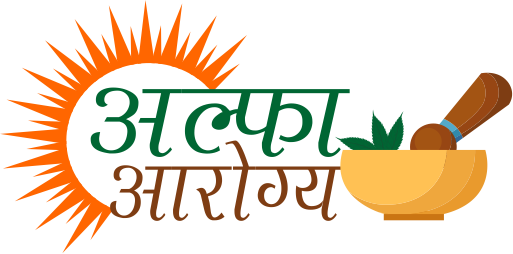
Ayurvedic Diet and Gut Health
Easier to take in harder to pass; that is what Kachori is!
In Ayurveda, we focus on using natural remedies and a whole-body approach to health. A balanced diet is important for staying healthy. This diet can be different for each person and supports a healthy gut, which is key for digestion, immunity, and overall well-being. This guide shows how an Ayurvedic diet can help you live longer with a healthier digestive system.
Do you know your own Doshas?
There are three main doshas in Ayurveda: Vata, Pitta, and Kapha. Each person has a unique mix of these doshas. It's important to know which ones are dominant so you can choose the right foods to stay balanced physically and mentally.
Vata - Linked to air and space elements. Vata people are usually slim, energetic, and smart, but they may have gas or hard stools.
Pitta - A mix of fire and water elements. Pitta types have mid-sized bodies, good appetites, and are quick thinkers, but they might get heartburn due to acidity.
Kapha - Represents peace and order. Kapha people are generally calm and organized but may have slow digestion, leading to unwanted weight gain.
Basic Guidelines of an Ayurvedic Diet
Eat Fresh and Seasonal Foods: Always eat fresh and seasonal foods to help maintain physical balance.
Balance the Six Tastes: Include sweet, sour, salty, bitter, spicy, and pungent elements in your meals to avoid overeating and improve digestion.
Mindful Eating: Eat with awareness and gratitude. Avoid eating while watching TV or talking on the phone to stay focused and improve digestion.
Meal Timing: Have your main meal in the afternoon when your digestive fire is strongest. Dinner should be light, and avoid eating late at night.
Drink Warm or Room Temperature Water: Cold water can weaken digestion, so prefer warm water or herbal teas.
Some Foods to Keep Your Gut Healthy
Foods to Balance Vata:
- Steamed Vegetables: sweet potatoes, carrots, and beets.
- Whole Grains: rice, quinoa, and oats.
- Healthy Fats: ghee, olive oil, and avocado.
- Herbs and Spices: ginger, cinnamon, and cumin.
Foods to Balance Pitta:
- Cooling Fruits: melons, pears, and cucumbers.
- Green Leafy Vegetables: spinach, kale, and coriander leaves.
- Milk Products: milk, yogurt, and cottage cheese.
- Herbs and Spices: mint, coriander powder, and fennel seeds.
Foods to Balance Kapha:
- Light Vegetables: broccoli, cauliflower, and leafy greens.
- Legumes: chickpeas, beans, and lentils.
- Low-Fat Dairy Products: skim milk and low-fat yogurt.
- Herbs and Spices: turmeric, black pepper, and mustard seeds.
Ayurvedic Practices for Gut Health
Start the Day with Warm Water and Lemon
This simple drink helps stimulate digestion and cleanse the digestive tract.
Include Probiotics
Foods like yogurt, kefir, and fermented vegetables add good bacteria to your stomach.
Use Digestive Spices
Spices like ginger, cumin, and fennel help improve digestion and prevent bloating
Practice Abhyanga (Self-Massage)
Using warm oil for a self-massage can boost digestion and calm your nervous system.
Stay Active
Regular physical activities like yoga or walking can improve digestion and overall well-being.
Recipe: Ayurvedic Khichadi for Digestive Health
Ingredients:
1 cup basmati rice1/2 cup split yellow moong dal
1 tablespoon ghee
1 teaspoon cumin seeds
1 teaspoon mustard seeds
1/5 teaspoon turmeric powder
1/5 teaspoon coriander powder
1/5 teaspoon ginger powder
4 cups water
Salt to taste
Fresh coriander leaves for garnish
Instructions:
- Rinse the rice and moong dal separately under running water until clear.
- Heat the ghee in a pot on medium heat and add the cumin and mustard seeds. Cook until they start to pop.
- Add the turmeric, coriander, and ginger powders to the pot and stir well.
- Add the rice and moong dal to the pot, mixing everything together.
- Pour in the water and bring the mixture to a boil.
- Reduce the heat and let it simmer for about 30 minutes, or until the rice and dal are soft.
- Adjust the seasoning to taste.
- Serve hot, garnished with fresh coriander leaves.
This dish is nutritious, light on the stomach, easy to digest, and good for gut health.
Seek advice from nutritionists to create a healthy Ayurvedic meal plan that will improve your stomach's well-being. This will help you maintain good gut health and support a healthy metabolism. By following Ayurvedic principles, you can enjoy better digestive health and overall well-being.

